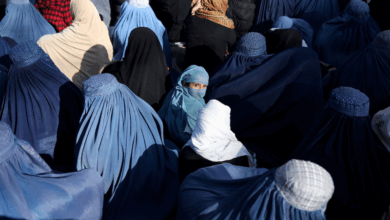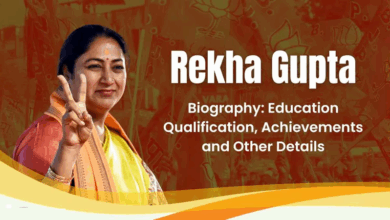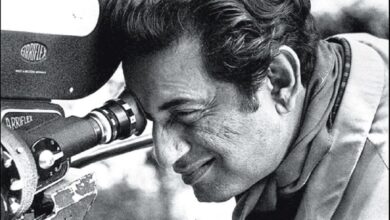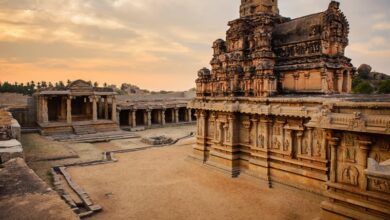Conflict between Legislature and Judiciary Can Lead to Constitutional Crisis
By Pradip Dutta Roy
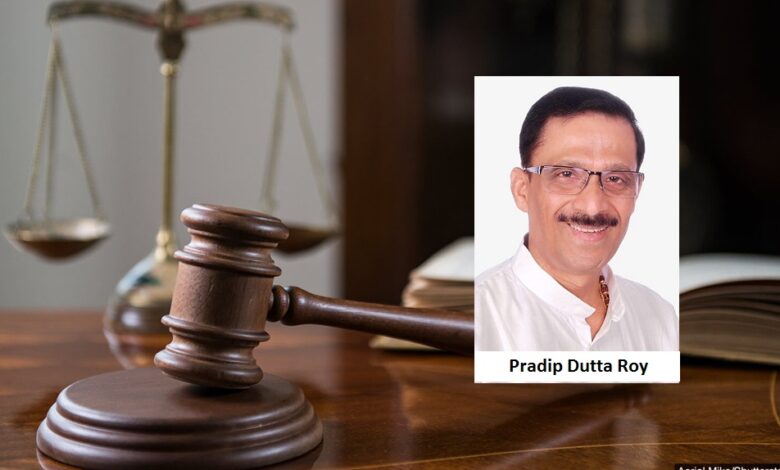
In recent times, certain events and statements by individuals have brought to light a potential conflict between the country’s central legislature and the Supreme Court. This controversy primarily stems from a judgment delivered by the Andhra Pradesh High Court. The court ruled that bills passed by a state legislature cannot be kept pending indefinitely by the Governor or the President.
Accordingly, the court recognized 11 bills passed by the Andhra Pradesh Legislative Assembly as laws, stating that if such bills are withheld for too long, they automatically become law. In such cases, the assent of the Governor or President is not mandatory. The judgment further stated that the Governor or President must take a decision regarding a bill within three months.
Moreover, if a bill returned by the Governor is passed again unanimously by the state legislature, the Governor cannot hold it back without granting approval. As a result, the Andhra Pradesh bills turned into laws even without the formal assent of the Governor or the President.
This incident is historic in the context of Indian democracy and has posed a new challenge before the central government. It has also raised a crucial question: does the Constitution provide any specific timeframe within which the Governor or the President must grant assent to a bill?
Incident Two: In a case filed in the Supreme Court challenging the Waqf Amendment Bill—passed by the central legislature and approved by the President—the court did not issue a complete stay on the law. However, it did impose a stay on two specific provisions.
The Supreme Court stated that:
- The character of Waqf by user properties cannot be altered.
- No non-Muslim member can be appointed to the Waqf Board.
The court will continue to hear the case to examine whether these two provisions of the Waqf Act violate any articles of the Constitution. The latest hearing took place on May 5. On that day as well, the Supreme Court refused to grant a complete stay on the Waqf Act. However, the next hearing has been scheduled in Chief Justice Gavai’s court on May 15.
It is generally understood that ensuring the protection of the Constitution falls within the Supreme Court’s responsibilities. Many individuals have filed petitions claiming that this central law infringes upon their constitutional rights. Therefore, the Supreme Court has no choice but to hear the case.
While some may raise objections about the judiciary intervening in a law passed by the legislature, the court cannot shy away from its duty. It will closely examine whether the amended Waqf Act is consistent with the Constitution.
Incident 3: A large amount of black money was recovered from the house of Justice Yashwant Verma, who was serving at the Allahabad High Court. The discovery occurred when a fire broke out at his residence, and the fire brigade and NDRF (National Disaster Response Force) were engaged in the rescue operation. During this, a significant amount of cash came to their attention. If this amount of cash were legitimate, no one would keep such a large sum at home. Moreover, Justice Verma has remained silent about the source of this money. Despite the recovery of illegal funds, no legal action has been taken against the judge. He has merely been transferred to the Delhi High Court and has been relieved of his judicial duties. However, questions have arisen as to why the Supreme Court did not issue any directives regarding legal action against him. This incident has caused a crack in public trust in the judiciary. People now doubt the entire judicial system because of the actions of one judge, which is unfortunate. Such incidents are undesired, and some have commented that this event has tainted the transparency of the judiciary.
Recent comments by Vice President Jagdeep Dhankhar on these incidents have sparked considerable controversy. First, Dhankhar stated that if the Supreme Court attempts to block a law passed by the legislature, then the judiciary should take over the entire law-making process, making the legislature unnecessary. He also questioned why the court did not take action after the recovery of illegal funds from a sitting judge’s house. He expressed strong dissatisfaction, stating that no person is above the law in the country, so why did the judiciary not take appropriate action against the judge.
Regarding the recent Andhra Pradesh High Court ruling, Dhankhar remarked that the court cannot set a time limit for the Governor or the President to approve a bill for lawmaking. The Andhra Pradesh High Court had declared that 11 bills of the state had become law without the Governor’s approval, stating that the Governor or the President cannot withhold approval for more than three months. Dhankhar questioned whether the Constitution provides any provision for the Supreme Court to take such action. He also emphasized that the Waqf Bill was legally created and received presidential approval after being passed in Parliament, and the Supreme Court cannot disregard this law. He implied that the Supreme Court seems to be choosing a path of confrontation with the government.
After the petition was filed in the Supreme Court regarding the Waqf Act, some members of the ruling party have started questioning the court’s jurisdiction. According to them, the court’s interference is unwarranted, as the law was passed in Parliament following proper procedure and was signed by the President, the highest constitutional authority. Some have even argued that the new law does not infringe upon any provision of the Constitution. On the contrary, the previous law had several flaws, and the amended law is a proper reflection of the constitutional rights granted. They believe that if the court examines the matter in detail, everything will become clear.
Regarding the principle of equal rights in the Constitution, many believe that the implementation of a uniform law across the country is necessary. This view has been raised by several parliamentarians. Everyone has questioned why no appropriate action was taken against Justice Verma after the discovery of illegal funds at his home. Naturally, their statements have raised concerns about the transparency of the judiciary. These comments are widening the path of confrontation. Given the sequence of events, there is no way to avoid these issues.
Currently, there is a conflict between the judiciary and the legislature, and it is essential to determine the role the government must play in resolving it. India is the world’s largest democracy. The three pillars of this democracy are the administration, the legislature, and the judiciary. These pillars are interconnected, yet each has its own distinct responsibilities. In this context, one branch cannot interfere with the work of another. No branch has the authority to act unilaterally outside the scope of government policy. In some cases, when administrative rules and policies are relaxed, the public suffers. However, the judiciary enjoys the trust of the common people.
But it is evident that courts are burdened with a mountain of pending cases. Due to the long duration of trials, in many cases, the plaintiff dies before receiving a verdict. The delay in trials often means that justice is not fully served. There is a saying: “Justice delayed is justice denied.” Prolonged trials essentially deny justice. However, the law also considers hasty judgments to be dangerous. That said, the backlog of cases in the courts is causing delays in case resolutions, which is gradually building frustration among the public. This cannot be denied. To resolve this issue, both the judiciary and the government have a shared responsibility to take action.
India’s judiciary has a significant reputation. Over time, it has resolved numerous complex cases, setting precedents. This is why the people of this country have immense trust in the judiciary. However, the recent controversies surrounding the mentioned incidents may cause doubts in the minds of a section of the public about the functioning of the judiciary. This could slightly affect the people’s trust. In the case of the judge from whose house illegal money was recovered, legal action should have been taken. If the highest court avoids this issue, it may send a wrong message to society. This incident could serve as an example, leading to unwanted questions about the judiciary in various cases.
Moreover, the backlog of cases in courts is causing delays in case resolutions. Prolonged judicial processes waste time and money for many people, leading to widespread frustration. The judiciary should focus on expediting case resolutions. If there is a shortage of judges, discussions with the government could address this problem. Similarly, regarding the observed conflict with the legislature, the Chief Justice of the Supreme Court can sit down with the government to resolve the situation. If the judiciary is not streamlined, it will create more problems in the future. I believe this issue should be given due importance.
On the other hand, the government should also find a way to resolve the conflict between the legislature and judiciary to avoid further escalation. This is crucial for a healthy democracy. All these matters should be resolved within the constitutional framework, as the constitution is supreme. The constitution assigns separate responsibilities to the administration, legislature, and judiciary. Just as it is the judiciary’s duty to ensure that the fundamental rights of the citizens are protected, the constitutionally granted rights should also guide the process of examining whether the laws passed by the legislature are appropriate. This will reduce the chances of conflict. I hope that the government and the judiciary will take appropriate steps, keeping in mind the importance of the constitution and resolving the conflict as soon as possible. Personally, I believe that the relationship between law and justice requires careful coordination.
(The author is a former student leader and a lawyer at the Gauhati High Court.)
(Note: The opinion expressed is the author’s personal viewpoint.)



